UK lobbyists, East Lothian Council and English Labour are working to overturn Scotland's nuclear power ban
Published in the 1st June edition of The National.
On May 1st, a public meeting was held in Dunbar. It was attended by 28 people, most of whom were retired workers from the nearby Torness nuclear power plant. An attendee provided me with notes from which I have drawn.
The meeting was organised by Britain Remade, a lobby group headed by Sam Richards, a former Tory SPAD.
Richards is also a former Director of the Conservative Environment Network, where he praised Michael Gove for “doing good work for our planet.”
A Britain Remade campaign, “New Scottish Nuclear Power,” aims to reverse the SNP’s ban on new nuclear power stations. Its petition has over 1400 signatures.
In addition to the petition and public meetings, its efforts include planting stories like this one in The Spectator on May 7th:
Also present at the Dunbar meeting were Councillor Norman Hampshire, leader of the East Lothian Council (ELC) and Chair of the Planning Committee, and Martin Whitfield, English Labour MSP for the South of Scotland.
Sam Richards described Britain Remade as a “cross-party campaigning group” that believes in economic growth and building infrastructure.
He boasted about the UK’s nuclear power track record. In 1956, the world’s first nuclear reactor, Calder Hall, was built in Sellafield, Cumbria (it was decommissioned in 2003). The plant’s main purpose was to produce plutonium for the UK nuclear weapons programme - electricity for the domestic market was a sideline. Throughout its 47 year life, it exposed workers and the public to higher levels of radiation than comparable reactors and wasn’t economically viable for long periods.
Sellafield was also the site of Europe’s worst nuclear accident, the Windscale fire in 1957, that led to the atmospheric dispersion of radioactive materials throughout England and Wales and parts of northern Europe. Sellafield has been a nuclear waste dump since 1959 and has been called Europe’s most toxic nuclear site, described as a “bottomless pit of hell, money and despair.” It’s a reason Scotland is the “cancer capital of world.”
That’s a hell of a track record, Sam.
Sam blamed high electricity bills on the UK’s failure to build more nuclear plants, claiming nuclear power was the reason France had lower bills. Wrong. Nuclear power has never been economic. It requires hefty government subsidies and there’s no solution for radioactive waste disposal. French energy bills are lower because France didn’t privatise its energy and thus retained the ability to cap costs. The French government owns 100% of Électricité de France (EDF), which runs the East Lothian Torness power station and the UK’s 4 other operating nuclear plants.
However, EDF doesn’t seem overly concerned with the safety of its UK plants. The Torness reactor has 46 cracks in its core which the ONR (Office for Nuclear Regulation) said could lead to a reactor meltdown and the release of radiation into the environment. Nevertheless, EDF has extended the life of the plant to 2030.
Britain Remade’s goal is to get the ban on nuclear lifted and to use the Torness site for new nuclear plants. Does that fill you with confidence?
Then English Labour MSP Martin Whitfield trotted out 2 pro-nuclear talking points, both of which are easily refuted:
Nuclear power doesn’t increase CO2. Not so. There are carbon emissions from mining, transporting and processing uranium, from constructing power plants and from transporting radioactive waste to places like Sellafield. By contrast, renewable energy doesn’t increase CO2, there’s no mining required or toxic waste to dispose of, and Scotland is bursting with renewables.
Nuclear power creates skilled jobs for life. The renewables industry also creates skilled jobs for life without shortening it - in engineering, project management, data analysis and renewable energy technologies - and doesn’t endanger the health of workers or the local community.
Councillor Hampshire, who worked at Torness from the beginning, spoke next. He said that although he “had to support renewables”, nuclear is needed for baseload power, which is the minimum power level on the grid.
Wrong again. Baseload power can be provided by any mix of generators, including variable wind and solar, if constant backup sources like tidal are provided. Furthermore, nuclear can’t be easily switched off, so when it’s present on the grid, much cheaper renewables are limited, which raises costs to the consumer.
Nonetheless, Councillor Hampshire said he was lobbying hard for more nuclear power. He wants two Rolls Royce SMRs (Small Modular Reactors) at the Torness site, claiming they’re cheaper and quicker to build and said that many SNP MSPs support him.
I wrote about SMRs back in February, showing they are 1) more expensive than and just as dangerous as large nuclear reactors, 2) will generate more radioactive waste and 3) will turn communities into de facto long-term nuclear waste disposal sites.
There’s also the minor detail that only two SMRs are operating in the world today - in Russia and China. Both are performing at less than 30% capacity and have been plagued by cost and time overruns. According to the World Nuclear Energy Status Report, these problems “make it even less likely that SMRs will become commercialised.”
Despite these facts, Councillor Hampshire vows to include SMRs in the next ELC Local Development Plan. He said “a lot of work is going on behind the scenes” to ensure Torness remains an active nuclear site. Otherwise, “the UK would have to import energy” and “Scotland can’t just keep its energy to itself.” Does he seriously claim to represent Scotland?
During the Q&A, Martin Whitfield was asked what it would take to change Scotland’s position. He replied “a change of government,” and questioned whether Scotland has the authority to ban nuclear power since energy policy is reserved to the UK. It does, because the Scotland Act 1998 devolves planning to Scotland.
Nevertheless, Whitfield said this could and would be tested through the courts, although he later clarified there were no definite plans to mount a legal challenge to Scotland’s authority to ban new nuclear power.
We know exactly why English Labour is pushing for more nuclear. They’re funded by the industry and I suspect that’s where Britain Remade gets some of its funding, too. The nuclear industry expects payback.
The UK Nuclear Industry Association boasted last September:
The places where nuclear is strong are also the places who put the Labour Party into government. Hartlepool on Teesside, Heysham on Morecambe Bay, Torness in East Lothian, and Sizewell on the Suffolk Coast host all our operational nuclear power stations, and all were Labour gains at the last election.
Britain Remade CEO Sam Richards ended the meeting by saying this was just the start of the campaign to lift the nuclear ban and that he’d be going to other parts of Scotland and then to Holyrood to argue the case.
Nuclear power is another issue crying out for Direct Democracy, where the Scottish People, not special interests who are in bed with the politicians, have the power to decide via a referendum whether they want it or not. There are many other issues, local and national, over which the Scottish People have no control - pylons in the Highlands, corporate tax haven ‘freeports’, the closures of Ardrossan Harbour and Grangemouth, the Loch Lomond Flamingo Land development, to name just a few.
If we’re to stop special interests always crushing the interests of the People, we must demand our international human rights. That’s why Respect Scottish Sovereignty (RSS) is urging as many as possible to sign PE2135, to enact the Direct Democracy/Self-Determination Covenant (ICCPR) into Scots law.
If you’re an East Lothian resident, you can write to Councillor Norman Hampshire (nhampshire@eastlothian.gov.uk) and Martin Whitfield (Martin.whitfield.msp@parliament.scot), and if not, write to your MSP and MP and ask them to support PE2135.
The sovereign Scottish People - not compromised politicians or nuclear lobbyists - should decide Scotland’s energy future and whether it can just keep its energy for itself.

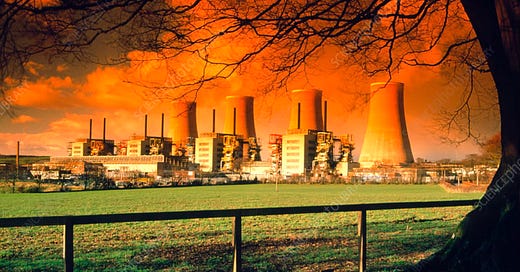





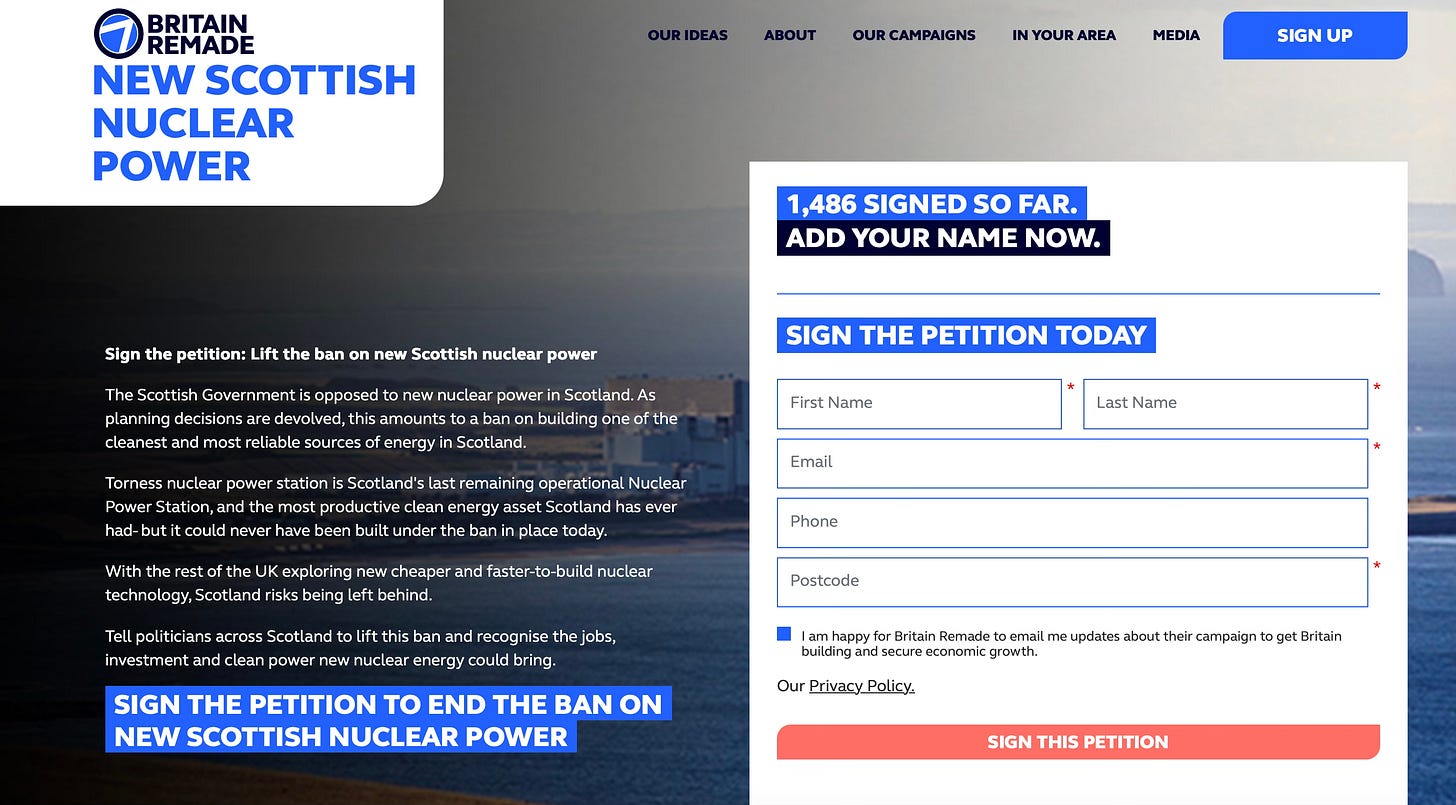
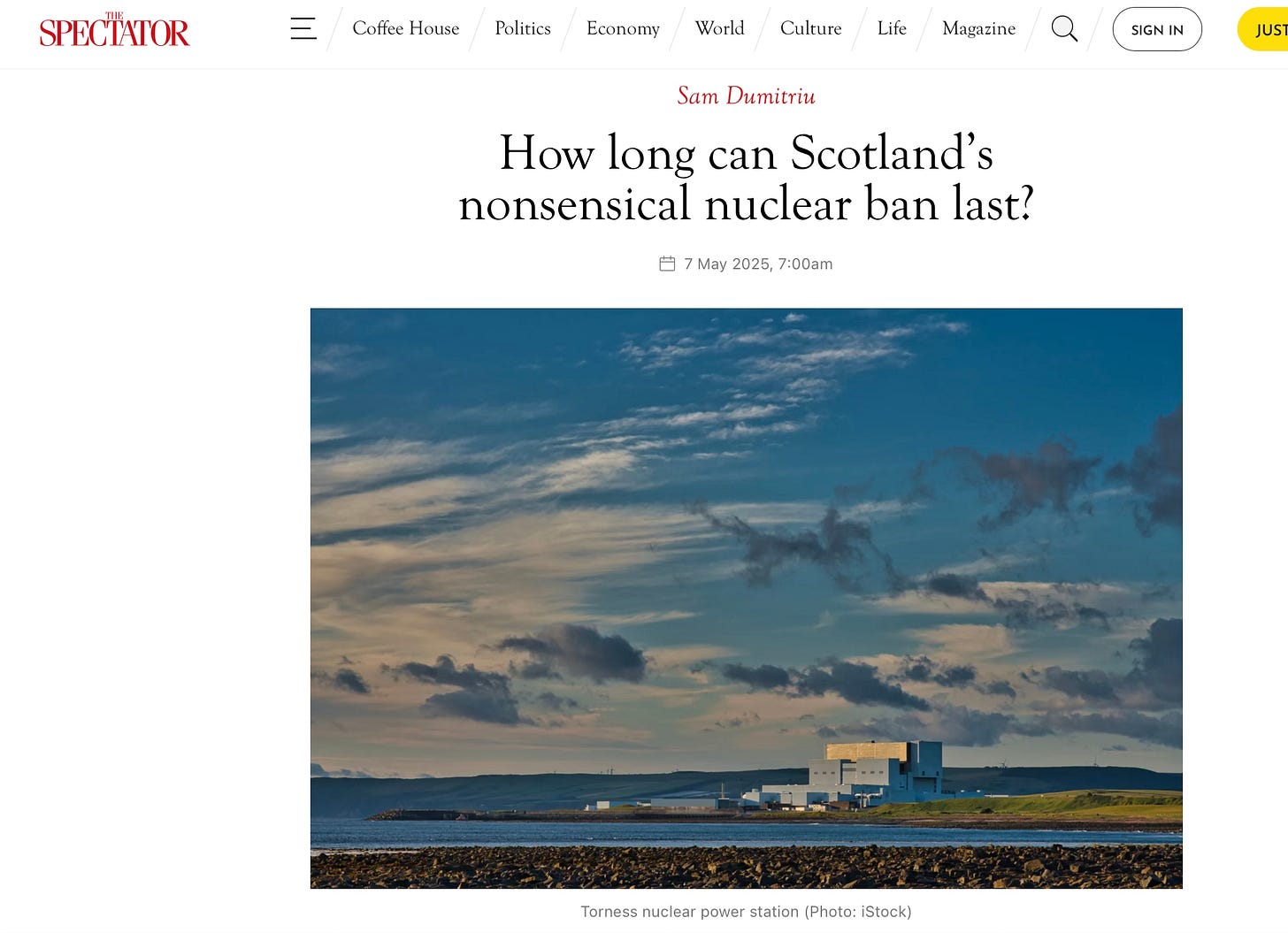
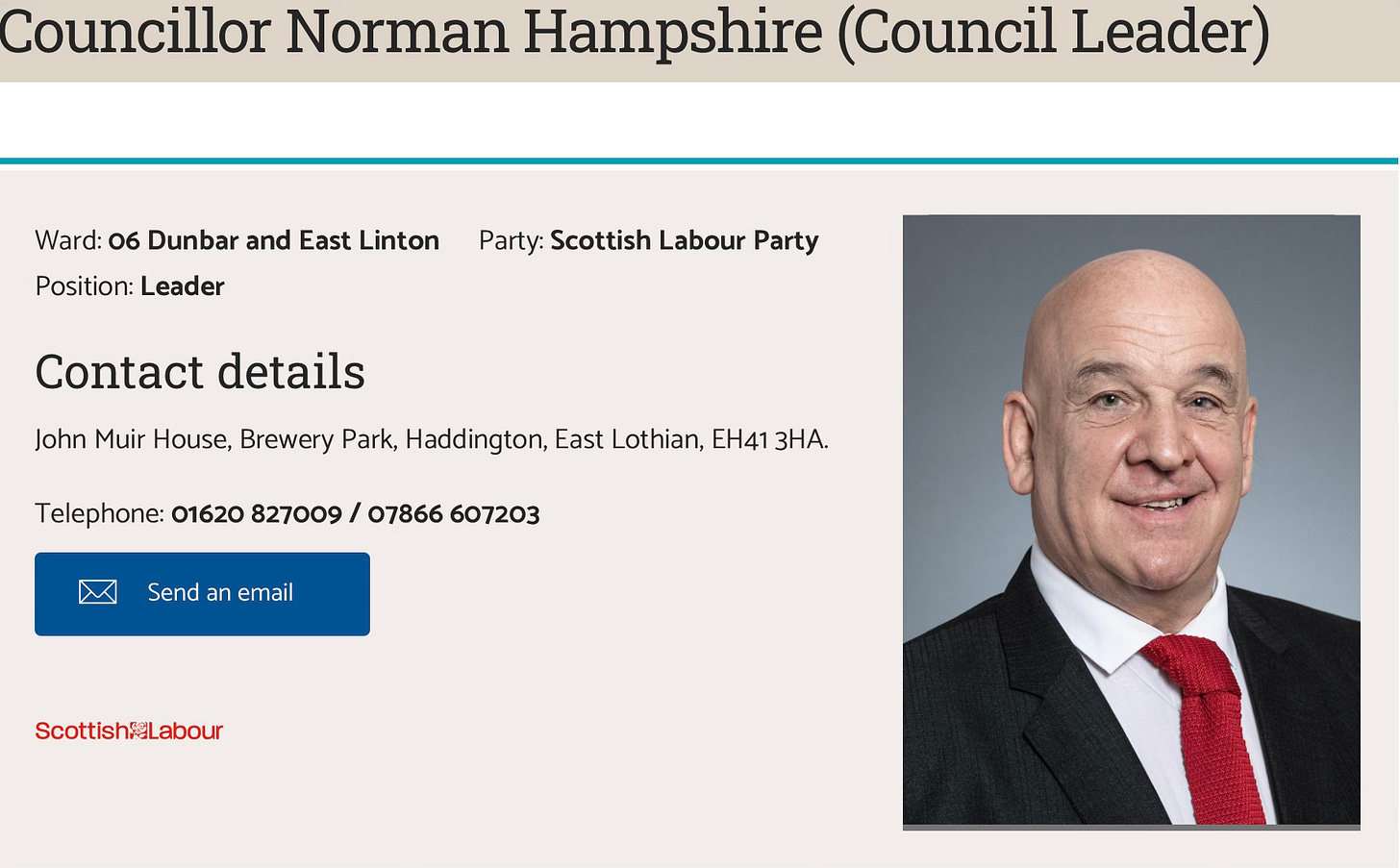
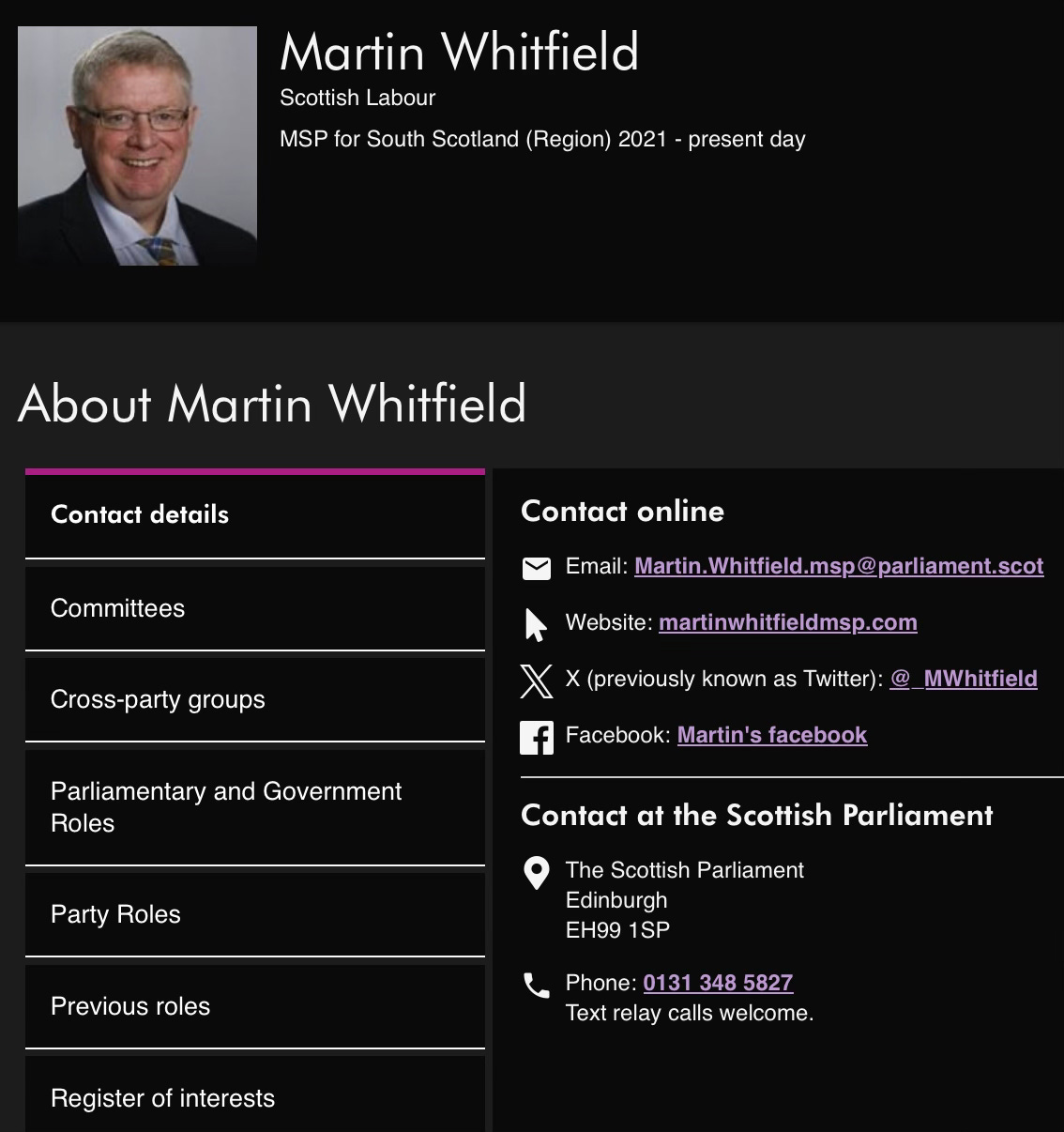

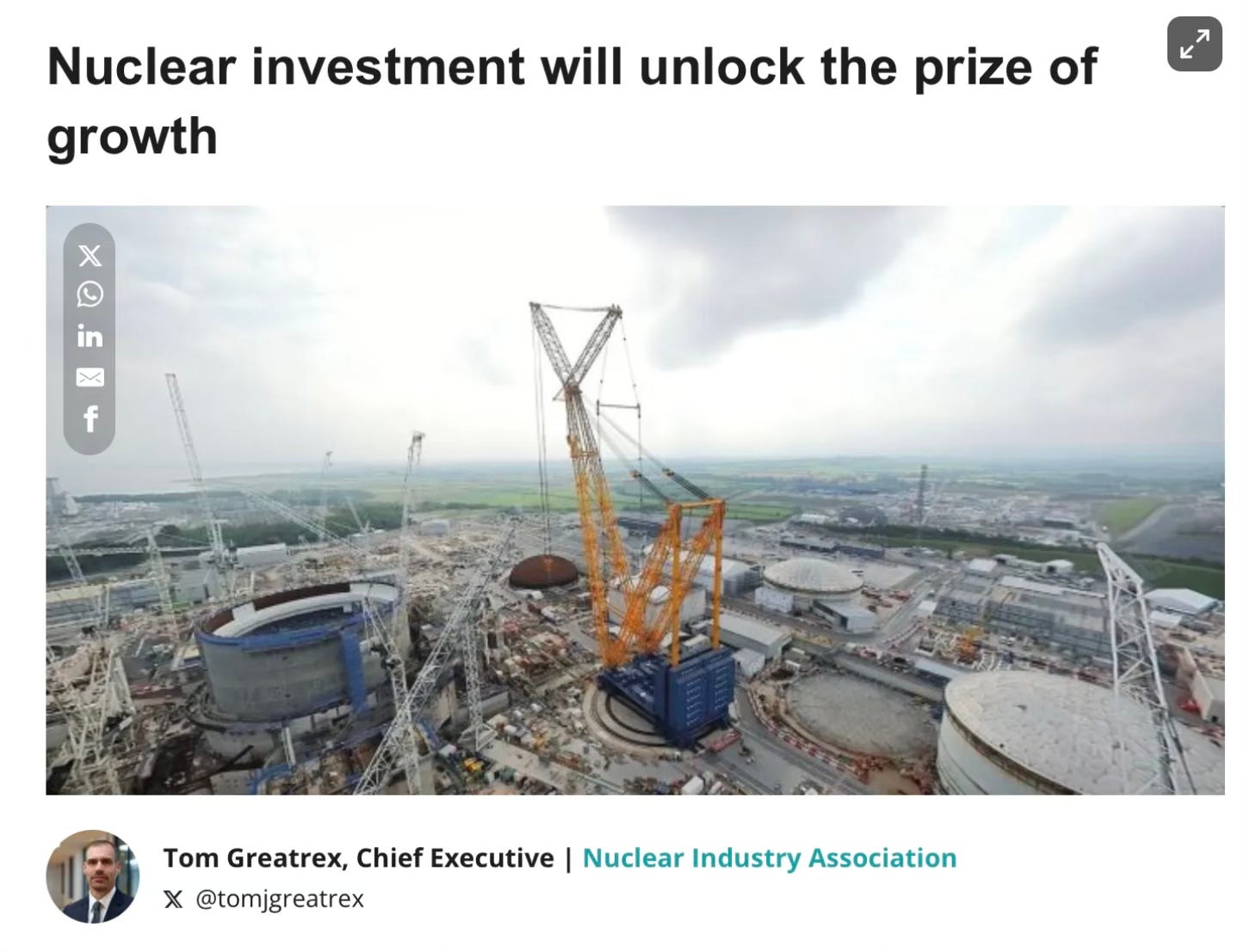
The UK nuclear industry lobby is as powerful as it gets and has long infiltrated the Labour Party. The CEO of the Nuclear Industry Association is ex Labour Minster for Energy, Tom Greatrex.
By coincidence, ex Labour Minster for Energy, Brian Wilson CBE is a non executive director of the biggest private nuclear services business, AMEC Nuclear Holdings Ltd.
https://bellacaledonia.org.uk/2021/09/30/labour-go-nuclear/ [ For the record, the lovely love child opposed the Strathclyde Region's referendum on water privitisation; was a 'no' at the 1979 referendum on devolution; was a 'no' at the 1997 referendum on devolution and was a 'naw' at the 2014 referendum on independence. He doesn't like them. He remains an apologist for the 2003 Iraqi War.]
Between 1982 and 1990, 25 people associated with the industry, in particular GEC-Marconi, died in mysterious circumstances. One of those may have been the SNP lawyer Willie McRae.
Tremendously good article as ever Leah, your coffee's in the post.
I'm not wholly opposed to nuclear in a base load capacity but only when Thorium reactors can be fully developed into a practical concept.
Given they can use waste, and most importantly NOT produce Plutonium, they should at least be considered.
Meantime, with Scotland sitting on probably millions of tons of coal there is no rational reason why we should not be using it, given the advanced processes that can be incorporated to minimise the environmental impact. If Scotland is to have a chance of re industrialising post - colonisation then we need to use and correctly husband out own indigenous energy sources. The idea that we can do everything from renewables is Magical Thinking driven by an outdated ideology. Renewables undeniably have an important place, it's true but they need to be realistically considered as part of a wider portfolio. Hydro also has untapped potential though that may come at an environmental cost also.
We should of course be concerned at the Brits' plans for us as there is always an ulterior motive for them and viewed from that perspective I fully understand the concerns here.
The Brits only want to increase Plutonium production and power their surveillance networks.